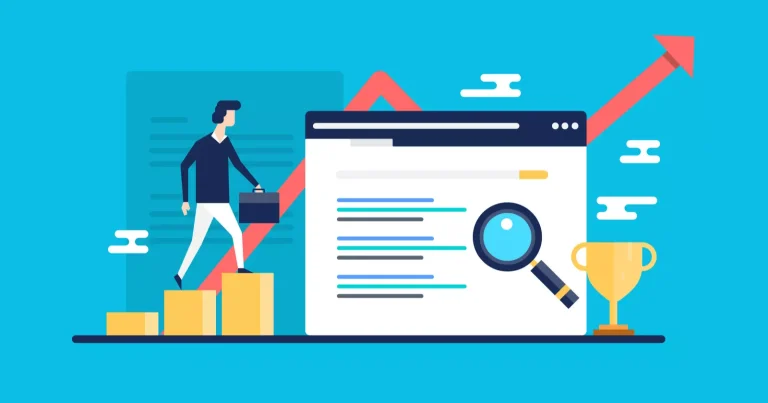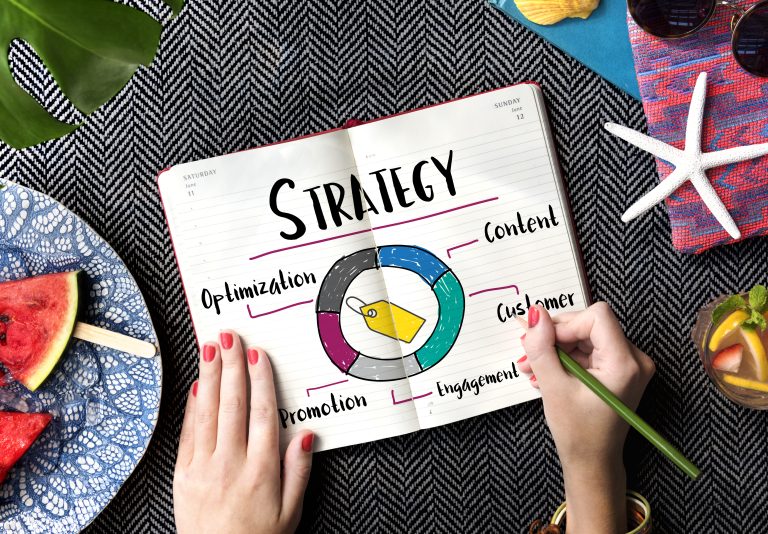
With the right e-commerce marketing services at your disposal, you can build brand awareness, establish credibility, and ultimately drive revenue for your online store. However, it’s important to choose a partner that can develop a customized strategy tailored to your business goals and target audience.







E-commerce marketing services are essential for US businesses looking to expand their online presence and increase sales.









An effective social media marketing strategy can help US businesses engage with their target audience and enhance brand awareness.








Donec responsive full width background slider nec magna eget purus faucibus iaculis. Vivamus in dictum turpis, quis dictum nunc. Aenean vel ullamcorper metus, quis feugiat purus.






rate
media
Marketing




Understanding The E-commerce Landscape
Obviously, the e-commerce landscape has undergone significant changes in recent years. With the increasing use of digital technology, consumers are now more inclined to shop online than ever before. As a US business owner, it is crucial for you to understand the e-commerce landscape and stay updated on current trends in order to effectively market your products and services.

Current Trends in US E-commerce
Mobile Shopping and Social Media Integration
One significant trend in U.S. e-commerce is the rapid growth of mobile shopping, necessitating the optimization of your website for mobile devices. The rise of social media as a shopping platform, particularly on Instagram and Facebook, is also reshaping the landscape, making it vital to incorporate these channels into your marketing strategy. Additionally, the popularity of subscription-based services presents new opportunities for unique product marketing. Lastly, artificial intelligence and machine learning are transforming how businesses engage with customers and market their products.

The Role of Marketing in E-commerce Success
Driving Customer Acquisition and Engagement
Marketing is vital for e-commerce success, helping attract customers and drive sales. Effective strategies enable you to reach your target audience, enhance brand awareness, and boost revenue. In a competitive landscape, staying updated on marketing trends and utilizing channels like email marketing, social media advertising, and SEO is crucial. Providing a seamless, personalized shopping experience hinges on these efforts. By leveraging data and analytics, you can gain insights into customer behavior and preferences, allowing for tailored marketing strategies. Understanding current trends and the importance of marketing positions your business for growth in the competitive e-commerce industry.
Build Effective E-commerce Strategy Build Effective E-commerce Strategy
Creating a robust e-commerce marketing strategy is vital for maximizing opportunities and optimizing resource allocation in the online business arena. A well-crafted plan should be customized to meet specific objectives and target audience needs, ensuring successful engagement and conversion.
- Understanding Your Target Audience
- Developing a Unique Value Proposition
- Tailoring Your Marketing Messages
- Optimizing Campaign Touchpoints
Knowing your target audience is fundamental to e-commerce marketing success. Conducting thorough research to analyze demographic, psychographic, and behavioral data will provide insights into who your potential customers are, their interests, and their online habits. This understanding allows for tailored marketing efforts that effectively address their needs and preferences, enhancing campaign effectiveness.
Crafting a distinctive value proposition is key to standing out in a competitive market. Define what differentiates your products or services from those of competitors and communicate these unique benefits clearly. Your value proposition should highlight how your offerings meet the needs or desires of your target audience, making your online store the preferred choice.
Your marketing messages should consistently reflect your unique value proposition and resonate with your target audience. By aligning your messaging with customer needs and preferences, you create a cohesive brand narrative that reinforces your value and builds stronger connections with potential buyers.
Ensure that your unique value proposition is consistently communicated across all customer touchpoints. From website content to social media interactions, every aspect of your e-commerce marketing should reinforce the benefits of shopping with your brand, helping to establish trust and drive conversions.
Boost Your E-commerce Success Today!
Ready to elevate your online sales and engagement? Contact us now to implement effective marketing strategies, optimize for mobile, and embrace the latest technologies. Let’s drive your business growth together!
Key E-commerce Marketing Services Key E-commerce Marketing Services
Your e-commerce business requires a range of marketing services to effectively reach and engage with your target audience. Implementing these essential e-commerce marketing services will help you elevate your online presence, drive traffic to your website, and ultimately increase sales and revenue.
Search Engine Optimization (SEO) is essential for e-commerce marketing. By optimizing your website and product pages, you can enhance organic search visibility and attract qualified traffic. Key elements of effective SEO include keyword research, on-page optimization, technical SEO, and link building. It's crucial to ensure your site is mobile-friendly, as search engines prioritize such sites. A strong SEO strategy will boost your ranking in search engine results pages (SERPs) and increase online visibility. Since SEO is an ongoing process, regular performance analysis and adjustments based on algorithm updates and user behavior are vital. By maintaining an optimized site, you can consistently drive organic traffic and attract high-quality leads.
Search Engine Optimization (SEO)
for E-commerce
Pay-Per-Click (PPC) advertising is a crucial e-commerce marketing tool that effectively promotes products and drives immediate traffic to your website. With PPC, you can create targeted ads that appear in search engine results and on various online platforms, paying only when a user clicks on your ad. This approach allows for precise audience targeting and instant visibility. When implemented strategically, PPC can yield a high return on investment (ROI) by reaching potential customers actively searching for your products. It increases brand awareness, generates leads, and boosts sales quickly. Additionally, PPC offers valuable insights into consumer behavior and enables real-time performance tracking for optimal campaign effectiveness.
Pay-Per-Click (PPC)
Advertising
Understanding Effective Strategies for E-commerce Marketing
To successfully market your e-commerce business, employing a multi-faceted approach is crucial. This involves leveraging various channels and techniques to build brand awareness, engage your audience, and drive sales. A comprehensive strategy should integrate email marketing, content marketing, social media, and influencer partnerships. By combining these elements, you can create a robust marketing plan that addresses different aspects of customer engagement and conversion.

Creating Effective Email Campaigns
Personalization and Relevance
When crafting email campaigns for your e-commerce business, the focus should be on delivering personalized and valuable content. Personalization helps increase engagement and conversions by addressing subscribers by their names and tailoring content to their preferences and behaviors. Ensure that your emails are mobile-responsive for a seamless experience across devices. Use attention-grabbing subject lines, compelling visuals, and clear call-to-action buttons to drive engagement. Regularly track and analyze campaign performance to refine strategies and achieve better results.

Segmenting Your Email List for Targeted Messaging
Effective Segmentation for Personalized Outreach
Segmenting your email list allows for more precise targeting by dividing subscribers into specific groups based on demographics, behaviors, or purchase history. This segmentation enables you to send personalized and relevant emails, improving engagement and conversion rates. Tailor product recommendations, promotions, and content to each segment’s interests and preferences. Additionally, use segmentation to re-engage inactive subscribers and nurture leads through targeted content, leading to higher open and click-through rates and increased revenue.

Content Creation and Curation
Content Creation and Curation
High-quality content is essential for effective content marketing in e-commerce. Focus on creating engaging blog posts, product descriptions, videos, and infographics that resonate with your target audience. Address customer pain points, offer solutions, and highlight the unique value of your products or services. Curate content from industry influencers or collaborate with content creators to broaden your reach and build credibility. Well-crafted content not only attracts potential customers but also retains existing ones by providing consistent value.
Content Promotion and Distribution
Maximizing Reach and Engagement
After producing valuable content, effective promotion and distribution are key. Utilize social media, email marketing, and partnerships to reach a broader audience. Optimize your content for search engines with relevant keywords and metadata to boost organic reach. Consider investing in paid advertising to enhance visibility among targeted demographics. Explore distribution channels like guest posting, influencer collaborations, and affiliate marketing to strengthen brand presence and drive traffic to your e-commerce site.
Boosting E-commerce Conversion Rates Boosting E-commerce Conversion Rates
Maximizing conversion rates is essential for turning website visitors into customers. Conversion Rate Optimization (CRO) involves enhancing your website or landing page to increase the likelihood that visitors will complete desired actions, such as making a purchase, signing up for a newsletter, or filling out a contact form. By implementing effective CRO strategies, you can significantly improve your website’s performance and drive higher revenue.
- Analyzing User Behavior
- A/B Testing and User Experience Improvements
- Key Performance Indicators (KPIs) for E-commerce
- Utilizing Analytics Tools to Track Success
Understanding user behavior is critical for effective CRO. By analyzing how visitors interact with your website, you can uncover patterns, preferences, and pain points. Tools like heatmaps, session recordings, and click tracking help you visualize where users are dropping off, identify poorly performing pages, and pinpoint elements that may be causing confusion or frustration. These insights enable you to make data-driven decisions to enhance user experience, such as streamlining the checkout process, improving navigation, and refining website design to be more user-friendly. Addressing these areas can reduce bounce rates and increase conversion likelihood.
A/B testing is a powerful method for optimizing conversion rates by comparing two versions of a webpage or element to determine which performs better. Testing different variations helps identify the most effective elements for driving conversions. Alongside A/B testing, continuous user experience improvements are crucial. This involves optimizing page load speed, streamlining the checkout process, and ensuring mobile responsiveness. Enhancing these aspects of your website contributes to a smoother, more intuitive user experience, leading to higher satisfaction and increased conversions.
Monitoring key performance indicators (KPIs) is essential for evaluating the effectiveness of your e-commerce marketing efforts. Important KPIs include conversion rate, average order value, customer acquisition cost, and customer lifetime value. These metrics provide insights into how well your marketing strategies are performing. For example, a high customer acquisition cost coupled with a low customer lifetime value may suggest inefficiencies in customer acquisition. Conversely, a high conversion rate and average order value indicate successful marketing tactics that drive sales and revenue. Regularly tracking these KPIs helps you make informed adjustments to improve performance.
Analytics tools are vital for tracking the success of your marketing initiatives and making data-driven decisions. Tools like Google Analytics offer detailed information about website traffic, user behavior, and conversion rates. By analyzing this data, you can identify which marketing strategies are most effective and adjust your efforts accordingly. Analytics tools also provide demographic and psychographic insights about your audience, enabling you to create targeted marketing campaigns that resonate with your visitors. Effective use of analytics tools helps you understand e-commerce performance better and optimize strategies for maximum ROI.
Understanding Implementing E-commerce Marketing Services
As e-commerce becomes an increasingly vital component of business success, the challenge lies in effectively implementing marketing strategies to boost sales and expand the customer base. Whether you choose to manage these tasks in-house or outsource them, several factors such as internal capabilities, budget, and goals play a crucial role in determining the best approach for your business.

Internal Management vs. Outsourcing
Deciding the Best Approach for E-commerce Marketing
Deciding between handling e-commerce marketing internally or outsourcing to an agency involves weighing control against expertise. Managing marketing internally allows for greater control over strategy and execution but demands substantial resources and expertise. Conversely, outsourcing provides access to specialized knowledge and experience, often leading to more effective campaigns and saving time. The choice depends on your business's specific needs and available resources.

Choosing the Right E-commerce Marketing Agency
Finding the Best Fit for Your Business Needs
Selecting an appropriate e-commerce marketing agency requires careful consideration of several factors. Evaluate the agency’s track record, examining case studies and client testimonials to ensure they have experience with businesses similar to yours. Assess the agency's service offerings to confirm they align with your goals, and consider their communication and reporting practices to ensure a transparent and collaborative partnership.

Case Studies and Success Stories
Learning from Real-World E-commerce Successes
Several businesses have demonstrated the power of effective e-commerce marketing through their success stories. For instance, XYZ Clothing achieved a 150% increase in online sales by leveraging social media and email marketing. ABC Electronics boosted website traffic by 200% with SEO and PPC advertising. DEF Beauty saw a 250% increase in conversions by combining video content with targeted Google Ads. These examples highlight the impact of strategic marketing on business growth.

Analysis of Effective E-commerce Campaigns
Insights from Successful Campaigns
Successful e-commerce campaigns share common strategic elements. Key factors include understanding the target audience, utilizing data-driven insights, and leveraging digital marketing tools. Focus on enhancing user experience, refining value propositions, and optimizing conversion funnels to boost performance. Continuous monitoring of key performance indicators (KPIs) and adapting strategies accordingly is essential for sustained success.

Learning from Challenges and Failures
Gaining Insights for Future Success
Embracing challenges and learning from failures are crucial for refining e-commerce marketing strategies. Whether facing technical hurdles or shifts in consumer behavior, acknowledging and addressing failures can lead to innovative solutions and resilient strategies. Foster a culture of experimentation, agility, and continuous feedback to navigate obstacles and drive long-term growth.

Future of E-commerce Marketing
Emerging Trends and Innovations
The e-commerce landscape is poised for continued evolution with advancements in technology and shifting consumer behaviors. Emerging technologies like artificial intelligence, virtual reality, and augmented reality are set to revolutionize interactions with customers, offering personalized and immersive experiences. Staying ahead of these trends and adapting to changing consumer expectations will be key to maintaining competitiveness and driving future growth. Embracing these innovations and understanding evolving behaviors will position your business for success in the dynamic e-commerce environment.
Key Strategies for E-commerce Success Key Strategies for E-commerce Success
Focus on customer retention through excellent service and personalized experiences. Use data to tailor offerings and implement loyalty programs to encourage repeat business. Optimize your site for mobile users with fast loading and intuitive navigation. Ensure compliance with e-commerce regulations and prioritize data security to build trust.
To retain customers, focus on exceptional service and personalized experiences. Address concerns promptly, offer helpful communication, and exceed expectations. Use customer data to tailor marketing efforts and product offerings, making customers feel valued and increasing their loyalty.
Customer Retention Techniques
Strategies for Building Long-Term Loyalty
Loyalty programs that offer rewards and exclusive perks encourage repeat business. Engage customers through social media and email marketing to keep your brand top-of-mind and foster long-term loyalty.
Loyalty Programs and Engagement
Enhancing Customer Loyalty and Repeat Business
Mobile shopping is rapidly growing as consumers prefer using smartphones and tablets for purchases. Optimize your e-commerce site for mobile devices to provide a seamless and efficient shopping experience.
Growth of Mobile Shopping
Capitalizing on the Mobile Commerce Boom
Ensure your site is mobile-friendly with fast-loading pages and intuitive design. Implement mobile-specific features like one-click purchasing to enhance user satisfaction and drive conversions.
Mobile Optimization
Enhancing the Mobile Shopping Experience
Adhere to e-commerce regulations such as the Uniform Commercial Code (UCC) and Federal Trade Commission (FTC) Act. Stay updated on legal requirements to avoid disputes and protect your reputation.
Regulatory Compliance
Adhering to E-commerce Laws and Standards
Implement robust security measures to protect customer data and build trust. Use secure payment gateways, encrypt information, and be transparent about data handling to reassure customers and encourage repeat purchases.
Privacy and Security
Protecting Customer Data and Building Trust
Conclusion Conclusion
So, as a US business owner, you can see the immense potential and impact of e-commerce marketing services on your online sales and business growth. By leveraging these specialized services, you can effectively reach your target audience, improve your online visibility, and ultimately drive more sales. With the right e-commerce marketing strategies in place, you can stay ahead of the competition and build a strong online presence that resonates with your customers. Additionally, these services can also help you build and maintain brand loyalty, ultimately leading to a sustainable and successful online business. It is important to recognize the pivotal role that e-commerce marketing services play in the success of your online business. By partnering with a reputable e-commerce marketing agency or utilizing their services, you can benefit from their expertise and industry knowledge to accelerate your online business growth. By investing in e-commerce marketing services, you are investing in the future success and sustainability of your online business. So, take the necessary steps to explore and implement these services to propel your business into the digital marketplace with confidence and efficiency.
FAQs FAQs
A: E-commerce marketing services for US businesses are specialized marketing strategies and tactics aimed at promoting and selling products or services online to a US-based audience.
A: E-commerce marketing services for US businesses may include search engine optimization (SEO), pay-per-click (PPC) advertising, social media marketing, email marketing, content marketing, and influencer marketing, among others.
A: E-commerce marketing services are crucial for US businesses as they help increase brand visibility, drive website traffic, and ultimately lead to higher conversion rates and sales, especially in a competitive market like the US.
A: E-commerce marketing services can benefit US businesses by providing targeted and measurable marketing campaigns, reaching a wider audience, increasing customer engagement, and ultimately boosting revenue and profitability.
A: US businesses should consider the agency’s expertise in e-commerce marketing, the ability to customize strategies based on their target audience, track record of success, and the ability to provide measurable results and ROI.
A: Yes, effective e-commerce marketing services can help US businesses expand internationally by targeting specific markets, optimizing websites for global visibility, and leveraging cross-border e-commerce strategies.
A: US businesses can measure the success of e-commerce marketing services through metrics such as website traffic, conversion rates, return on ad spend (ROAS), customer acquisition cost (CAC), and overall sales and revenue growth.

